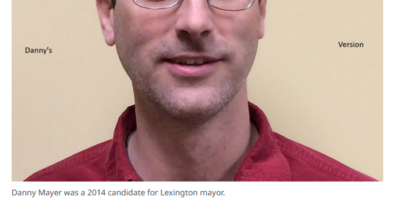The leek: a satirical take
By Horace Heller Hedley, IV
The U.S. health care system, long criticized for poor accessibility, lackluster overall outcomes, and low health benefits per dollar spent, now ranks sixth among the world’s developing countries. These results from a recent World Health Organization (WHO) survey covering nearly all national health care systems place the U.S. among the top four percent of developing nations—trailing only Columbia, Morocco, Chile, Dominica, and Costa Rica. These findings from the WHO’s paper “Measuring Overall Health System Performance for 191 Countries” are expected to vindicate defenders of the U.S. health care system.
“The 96th percentile among two-thirds of the world’s nations,” said Richard Johansen, Deputy Director of the conservative Heritage Foundation, a staunch opponent of the Affordable Care Act. “Does that sound like a system desperate for a costly overhaul?”
Despite the encouraging world ranking, some advocates of U.S. health care feel that the WHO rating system shortchanges their program. The WHO rating calculates a weighted average of data in five key areas: health outcomes, health inequality, responsiveness-level, responsiveness-distribution, and fair financing. The WHO focuses on equity in health care delivery, while de-emphasizing technologically-sophisticated treatment—an approach that irks some U.S. health policy experts.
“Fair according to who—some one-world-government bureaucrat with a calculator?” asked Justin Withers, former health policy advisor for the Bush administration. “How we finance our system is our business. The stem cell organ replacements and targeted chemotherapies and artery-repair nanobots? Don’t expect them to come out of Morocco.”
Some expressed doubts that the U.S. could hold its sixth place ranking amid growing competition from several up-and-coming Third World programs. “The U.S. is a big fish—everybody is gunning for you,” said Dr. Roger Klineman of Emory University’s School of Public Health. “Senegal has strong fundamentals in their program, and they could move up the ranks. Paraguay had an excellent recruiting year, and they play outstanding defense with strong prevention programs. The Albanians can’t match our big men on the inside—no NIH there—but they really hustle in public health initiatives, and they play as a team.”
In fact, some U.S. experts are calling for scrapping the rating system in favor of an international tournament to determine the final rankings. Proponents of the proposed national health care system playoff, informally dubbed “Med Match Madness,” claim it is the only method that can determine an indisputable champion among national systems. The playoff system proposed by U.S officials would allow 15 medical experts from each participating nation to face off in a variety of medical specialties, plus general diagnostics, prescription selection and dosing, bedside manner, and creative insurance coding.
Some medical professionals in the U.S. are thrilled about the prospect of the new international competition, and break-rooms in clinics across the country are abuzz with speculation. “We’re probably jumping the gun, but we’re already getting our brackets together!” said Katherine Myers, a physician’s assistant in Butlerville, IN. “Of course the U.S. team is everybody’s top pick—wishful thinking, maybe, but we’ll probably have home court. And who doesn’t have a soft spot for a scrappy little Cinderella program like Dominica?”
U.S. officials have offered to host the event, and proponents have brushed off concerns about the anticipated price tag. “A trivial health expenditure, really,” said William Eberhart, public health analyst with Health Care Finance Consultants. “I’m confident we can bring off a first-rate tournament for less than the cost of a comprehensive prenatal outreach program in a medium-sized city. Besides, several pharmaceutical companies are already inquiring about sponsorships.”




Leave a Reply